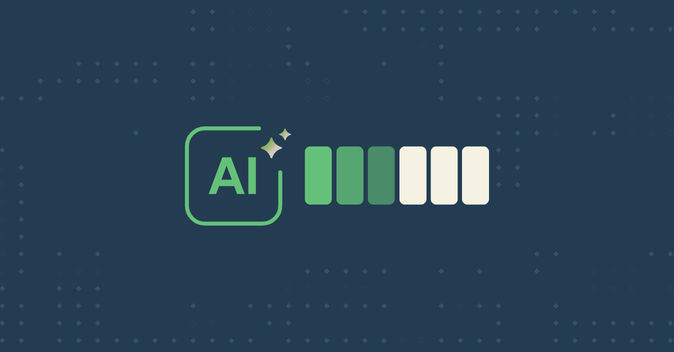
Originally published on TestRail
Test case management has always been one of the most time-consuming, yet critical aspects of quality assurance. Keeping pace with rapid development cycles makes it harder to manage test cases and maintain reliable coverage across complex systems. From maintaining test case libraries as applications evolve to ensuring adequate coverage across complex, integrated systems, the challenges of effective test management have only grown more complex as software development cycles accelerate.
Enter Artificial Intelligence (AI)—a technology that promises to solve many of these persistent challenges. The appeal is clear: AI offers the possibility of creating comprehensive test suites quickly, reducing the manual effort that has traditionally consumed so much of QA teams’ valuable time.
According to our Fourth Edition Software Testing & Quality Report, 86% of QA professionals are either exploring or already using AI in their workflows. Despite the excitement and growing adoption, the reality of implementing AI in test case management isn’t always smooth sailing. While AI tools offer impressive capabilities on paper, QA teams are discovering that integrating these solutions into real-world workflows comes with significant challenges. Most teams are still seeing only small shifts despite AI’s promise of big changes, and many are struggling with obstacles that weren’t apparent during initial pilot projects.
Based on insights from thousands of testing professionals in our Software Testing & Quality Report, here are the three biggest obstacles teams face when implementing current AI solutions for test case management.
Challenge #1: The integration and tool selection dilemma

One of the most pressing issues with current AI solutions in test case management is their lack of seamless integration with existing workflows and the difficulty teams face in selecting the right tools. While 86% of teams are exploring or using AI, most are still relying on general-purpose tools rather than purpose-built testing solutions.
- Limited purpose-built testing tools
- Integration complexity
- The ‘right tool’ problem
- Limited human control and editing capabilities
- Resource misallocation and security concerns
Challenge #2: Technical debt and context-free generation

AI excels at generating large volumes of test cases quickly, but this speed often comes at the cost of creating significant technical debt and context-unaware testing artifacts. Teams reveal that they are struggling with automation challenges—32% cite developing automated tests as a major obstacle—and AI-generated test cases without proper context can amplify these problems.
- Context-free generation creates brittle tests
- Technical debt accumulation
- Missing domain expertise
- Rework cycles and lost productivity
The fundamental issue is that effective test case management requires not just the ability to generate tests, but the expertise to generate the right tests that align with business priorities, system architecture, and long-term maintainability goals.
Challenge #3: The speed vs. quality trade-off in AI implementation

While AI promises to help teams move faster, there’s a concerning reality: 58% of teams report that rapid releases lead to defects slipping into production. When AI test case generation is rushed into workflows without proper validation processes, it can actually worsen this speed vs. quality dilemma rather than solve it.
- Pressure to deploy quickly creates shortcuts
- False sense of automated quality
- Fundamental quality best practices
- Quality as shared responsibility gets lost
The Breakthrough Solution: Strategic AI Implementation
Despite these challenges, the momentum around AI in QA is undeniable. 86% of teams are actively exploring or using AI, and only 14% have no adoption plans. The question isn’t whether AI will transform testing, but how it can be successfully implemented.
Our research reveals several strategic approaches for teams seeking to address these challenges:
- Start with mature processes
- Focus on specific value areas
- Invest in expertise and training
- Plan for the future
The future of AI in test case management isn’t about replacing human expertise, but rather augmenting it. As a key takeaway from our research demonstrates, AI isn’t here to take over QA; it’s here to change how we approach it. The teams that succeed will be those that understand both the potential and limitations of today’s AI tools, while laying the groundwork for more transformative capabilities in the future.
Looking Ahead: A New Approach to AI in Test Case Management
Recognizing the gap between the promise of AI and current implementation realities, TestRail is developing a new AI-based approach that directly addresses these fundamental challenges: it prioritizes seamless workflow integration, maintains human control and oversight, and leverages extensive testing expertise to generate contextually relevant and maintainable test cases.
With TestRail’s new AI test case generation, you can enhance rather than replace human judgment, delivering the speed and scale benefits of AI generation while maintaining the quality, context, and strategic thinking that experienced QA professionals bring to test case design.




